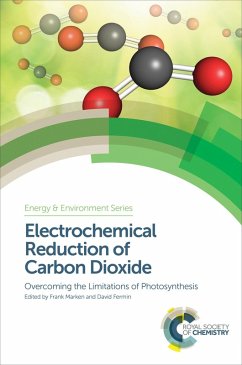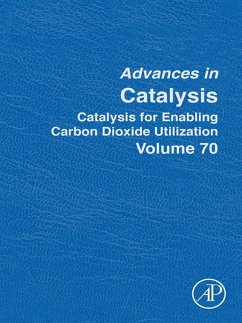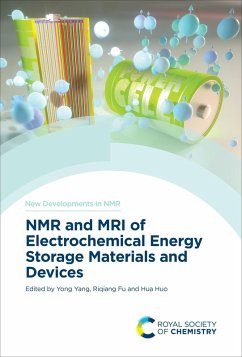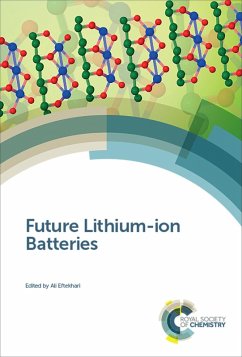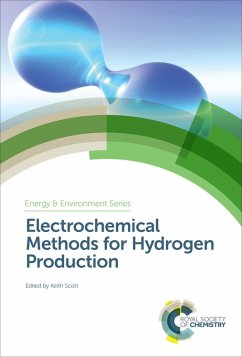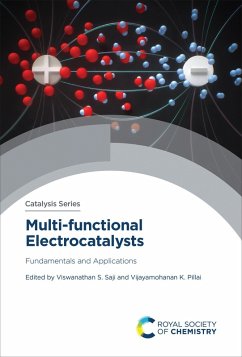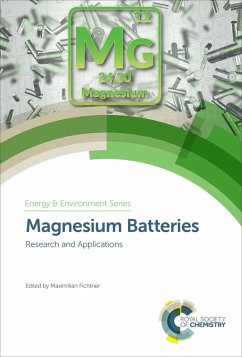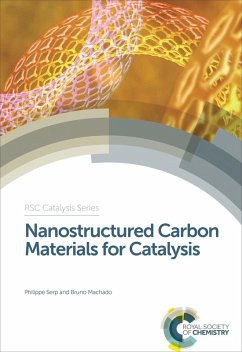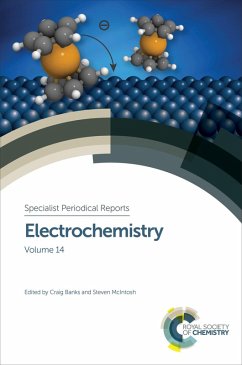
Carbon Dioxide Electrochemistry (eBook, ePUB)
Homogeneous and Heterogeneous Catalysis
Redaktion: Robert, Marc; Daasbjerg, Kim; Costentin, Cyrille

PAYBACK Punkte
92 °P sammeln!
Conversion of light and electricity to chemicals is an important component of a sustainable energy system. The exponential growth in renewable energy generation implies that there will be strong market pull for chemical energy storage technology in the near future, and here carbon dioxide utilization must play a central role. The electrochemical conversion of carbon dioxide is key in achieving these goals. Carbon Dioxide Electrochemistry showcases different advances in the field, and bridges the two worlds of homogeneous and heterogeneous catalysis that are often perceived as in competition in...
Conversion of light and electricity to chemicals is an important component of a sustainable energy system. The exponential growth in renewable energy generation implies that there will be strong market pull for chemical energy storage technology in the near future, and here carbon dioxide utilization must play a central role. The electrochemical conversion of carbon dioxide is key in achieving these goals. Carbon Dioxide Electrochemistry showcases different advances in the field, and bridges the two worlds of homogeneous and heterogeneous catalysis that are often perceived as in competition in research. Chapters cover homogeneous and heterogeneous electrochemical reduction of CO2, nanostructures for CO2 reduction, hybrid systems for CO2 conversion, electrochemical reactors, theoretical approaches to catalytic reduction of CO2, and photoelectrodes for electrochemical conversion. With internationally well-known editors and authors, this book will appeal to graduate students and researchers in energy, catalysis, chemical engineering and chemistry who work on carbon dioxide.
Dieser Download kann aus rechtlichen Gründen nur mit Rechnungsadresse in A, D ausgeliefert werden.




